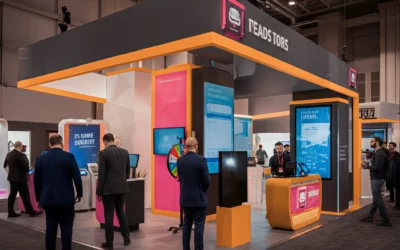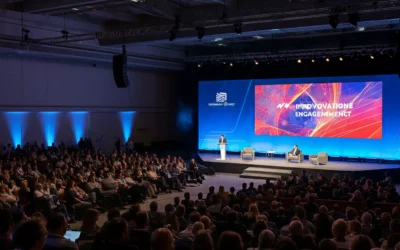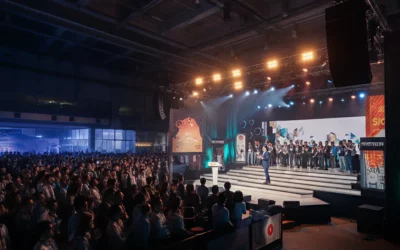Getting ready to plan your next event? Be sure to start your venue research and sourcing as soon as possible to ensure you get the best properties to select from.
Be Precise – know what your event needs are and be specific when it comes to the details. Make your site selection process a bit easier by following the below criteria when sourcing event venues.
Maximizing Your Site Selection Process
Whether you choose to go about the site selection process internally, or (like most companies) you leverage a 3rd party like J.Shay Event Solutions to do the heavy lifting (which can be free by the way!), you need a plan.
Site selection can be a long string of never-ending on-site visits if you can’t refine your search and work efficiently.
1. Know the Event’s Purpose
What is the purpose and objectives of your meeting? This will help guide you in choosing a location. For example, if planning for a sales kickoff, your site selection process will look different based on the type of audience, activities, and energy you are providing.
Consider choosing a beach location, Disney World, or Universal Studios where there are plenty of hotels with great meeting space and then easy access to all the fun for your group activities. Are your attendees traveling from all over for a one-day conference?
You may want to choose a convenient airport hotel with a large meeting space to cut down on travel time. The reason for the event will likely play a big role in selecting the location of your next event.
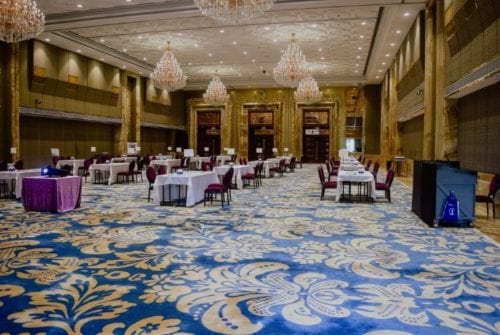
2. Event History
If this is not the first time this event has taken place you should give a detailed history of the previous venues that were used, and analysis of those venues to point out the pros and cons.
If parking was a nightmare for the previous event, then you know that it needs to be a top priority when selecting your next venue. Share with potential venues your experiences or areas of concern so they can assure you that their venue will fit your needs.
3. Know your Audience
Good knowledge of your attendees’ interests, demographics, and the location is important. If they are traveling internationally maybe you need multi-lingual hotel staff, or you may choose to pick a location that is easiest for them to get to, or some may want to make a family trip out of it so you want to ensure there is hotel / nearby entertainment for families.
4. Event Dates
Know your event preferred dates and if they are flexible. Are you willing to shift the pattern by a day or two? Do you want your event to occur on the weekend or during the week? Do you have alternate dates in mind and if so you should list those out in your RFP.
A venue that you love and would be perfect for your event may not have your preferred dates or the prices are too high on your preferred dates but for your alternate dates, the prices are right and available. It helps to be flexible!
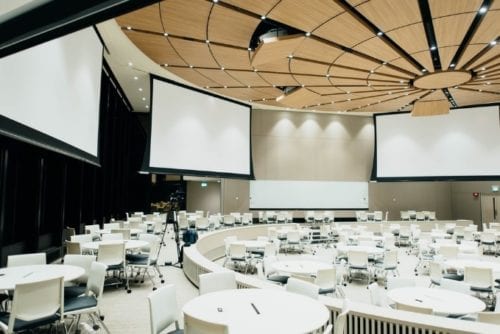
5. Agenda
We recommend having a high-level event agenda on hand and ready for when you start the sourcing and site selection process. Having this agenda is the best way to plan out the flow of the event in its entirety and what spaces you need for when.
The agenda will help you provide in the RFP the below items:
- Number of days the event will be
- Start and end times
- What function is being hosted each day/time
- What days/times you need the general session room
- Number of breakout rooms and what days/times
- Meal rooms
- Meals to plan offsite
- Where and when to have registration
- Load-in and load-out times
6. Space Requirements
This may seem like a given but ensure that the spaces you are considering have enough meeting space and sleeping rooms to fit your needs. We all know how those last-minute add-ons happen more times than not so it’s a good idea to ensure that you have room to grow if necessary.
Don’t forget about additional space for storage, staff meeting space, or pop-up meeting rooms that are available when needed.
7. Budget
It helps to know your budget before you start your sourcing and site selection process. Within that budget, it is also helpful to have a breakdown of what you will spend on sleeping rooms, F&B, meeting room rentals, etc.
If you know you will not spend more than $200/night on sleeping rooms, you should list that in your RFP. You don’t want to waste your time or the venue’s time in reviewing or submitting requests if they can’t fit within their budget.
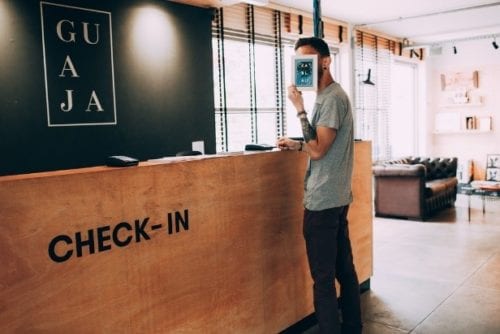
8. List out Your Requested Concessions
We find it helpful you request concessions from the get-go. Think about what is most important to the group and what they will get the most value out of.
Some of your requests will be approved, and some won’t. Don’t worry though, once you narrow down your selection you can then start negotiating to get more of the concessions you were hoping for.
9. Detailed RFP
Don’t send off a generic RFP and expect to get all your questions answered. Be as detailed as possible with everything you know about the event and everything that you require.
Note all the details, what seating arrangements you want in each meeting space, if you want a separate room for meals or a space for meals that isn’t an ordinary ballroom, etc.
List out everything that works for your group, so you save yourself from as much back and forth with the venues in the future.
10. Side by Side Comparison of Your Options
Create a spreadsheet with all your venue details for tracking purposes and to give you a great side-by-side comparison of your viable options.
Include:
- Who you have sent your RFP to,
- who has turned it down and why,
- who you have received a proposal from and all the details for that venue
- who has not responded
This will not only help tremendously with the site selection process but is also great to have for the next year when planning this event.
11. Narrow Down Site Selection Options
Analyze your proposals and evaluate the pros and cons of each to narrow down your selection. Once you have done so you will want to set-up site visits on the remaining venues if possible.
Site selection visits will allow you to walk through and visualize the entirety of your event in that space to see if it will work for your group.
Ask your hotel contact questions, they know the space better than anyone and have put on countless different events in the space and know what works and what doesn’t work.
The Wrap
The greatest tip overall when working on sourcing for your next venue is to be as detailed as possible in your RFP.
The more specific you are about your meeting space needs, room set-up, attendee needs, event history, etc. the better your responses will be. The more detailed the responses are, the easier it will be for you to complete your site selection process.
Site Selection is one of the many services that we offer our clients free of charge, as we are compensated by the hotel we choose. This means we do the heavy lifting so you and your team don’t have to travel and take multiple days away from the office – See how effective we are!
If you are interested in our site selection services or other event management services please click here to contact us!
You might also like…
Top 10 U.S. Meeting Destinations for 2026
Successful corporate events don’t just happen — they’re built on smart decisions, starting with...
The Trade Show Prep Guide: Boost ROI Like a Pro
Trade shows are a powerful way to elevate your brand's visibility, connect with potential...
President’s Club 2026 Ultimate Gift Guide
Luxury, Personalization, and Impact for Unforgettable Incentive Travel President’s Club isn’t just...
The Role of Corporate Event Managers is Evolving
Corporate events aren’t what they used to be. Gone are the days of basic cocktail hours and...
Revitalizing Sales Kickoffs: Strategic Insights for 2026
Gone are the days when Sales Kickoffs (SKOs) were just annual corporate pep talks. Today's SKOs...
Planning for Performance: The 2026 Guide to Mastering Incentive Travel
Here's Why Incentive Travel is Your Secret Weapon in 2026... Gone are the days when incentive...



